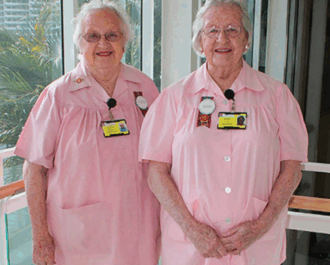
In recent years, the public profile of BRCA genes has risen – there is now an increased awareness of the serious implications that a mutation (or fault) in these genes can have. In Australia, about one in 400 to one in 800 women have a mutation in the BRCA1 or BRCA2 gene, which is linked to a 70 percent risk of developing breast cancer during their life. The genes also confer up to a 40 percent lifetime risk of ovarian cancer.
Current risk-reducing options for women who carry these mutations include preventive surgical removal of their breasts and/or ovaries, which has serious impacts on people’s lives. Hence, scientists have been searching for better preventative alternatives for these women who have few options.
To this end, a new trial, called the BRCA-P study, will be undertaken by Breast Cancer Trials in Australia to investigate whether a common osteoporosis medication can delay or prevent the development of breast cancer in women with an inherited BRCA1 mutation. The BRCA-P study is an international randomised controlled clinical trial, which will recruit over 2,900 healthy women who carry a faulty BRCA1 gene. It will be conducted across seven countries.
Principal Investigator, Professor Geoffrey Lindeman and Professor Jane Visvader (from the Walter and Eliza Hall Institute of Medical Research in Melbourne) previously reported in the leading journal Nature Medicine that the culprit cells that give rise to breast cancer in women with a BRCA1 gene mutation contain a marker protein called RANK. A drug called denosumab, which is approved for the treatment of osteoporosis and breast cancer that has spread to bone, can switch off RANK signalling. The BRCA-P study will investigate whether denosumab could be safe and effective as a breast cancer prevention agent. Denosumab is not currently approved for this purpose.
Professor Lindeman is the Breast Cancer Trials Study Chair of the BRCA-P clinical trial and is also a medical oncologist at the Peter MacCallum Cancer Centre and Royal Melbourne Hospital, said he is excited to see the laboratory work progress to clinical trials. He explained that the trial is investigating the use of the drug for prevention, rather than a treatment for women who already have breast cancer.
“I am hopeful that this approach could delay or even prevent breast cancer in women who carry a faulty BRCA1 gene. A rigorous clinical trial is the only way to determine whether this approach is safe and effective. Even if we were able to ‘buy time’ for women considering a mastectomy, that would be an important outcome,” he said.
NBCF is pleased to have provided some seed funding for early laboratory studies that contributed to showing that denosumab could significantly reduce the growth of breast cancer cells.
For more information about the BRCA-P clinical trial, visit the Breast Cancer Trials website.


